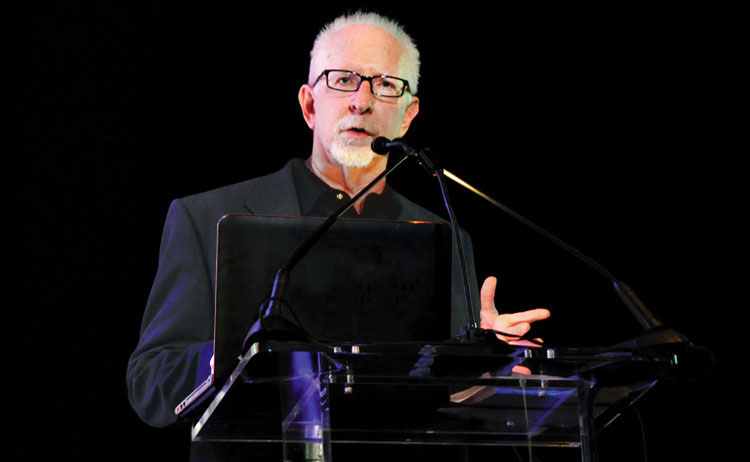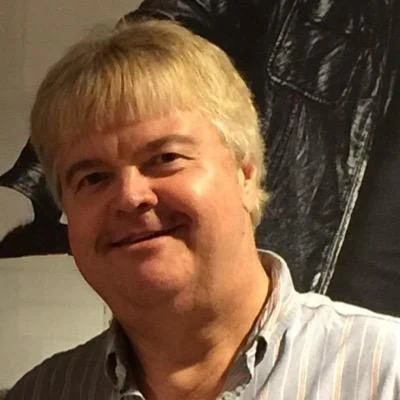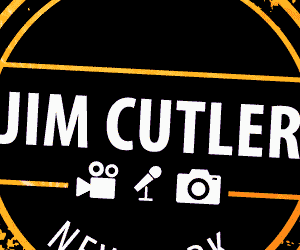Fred Jacobs is the president of Detroit-based Jacobs Media. He founded the company in 1983 and created the Classic Rock format when he conceived that Album Rock could be fragmented. He first launched the format in 1985 at WMMQ in Lansing, Michigan.
Before starting Jacobs Media, he was the Program Director of WRIF/Detroit and the Director of Research for ABC-FM-owned and operated stations. In 2018, he was inducted into the National Radio Hall of Fame, the first consultant to achieve that honor.
He is this week’s featured consultant.
Jeff Lynn: As the creator of the Classic Rock Format, you must be happy to see the current success of Classic Rock and Classic Hits. To what do you attribute its ongoing popularity?
Fred Jacobs: There are several things, much clearer to me now than they were back in the 80s. First, was the realization this is some of the best music ever made. You cannot sustain a format at a high level of success for more than four decades if the content isn’t stellar.
The format happened right as 1) 25-54 became the agency demo of choice, 2) It played into the huge bulge of Baby Boomers, by far the most people generationally, 3) radio and MTV at the time were focused on currency and hits, so the contrary position was big and available. And 4) seemingly a small thing, but compact discs emerged right at this point, an opportunity for fans to “upgrade” their record collections. Ironically, 40 years later and CDs are all but extinct, and vinyl is back.
JL: How have you evolved the format since you launched WMMQ in 1985?
FJ: In so many ways! Back then, Oldies stations on FM were something of a rarity, so my Classic Rock contained appropriate “oldies,” including Motown (especially at MMQ), British Invasion material, etc. It pretty much stopped at 1978. Playing U2 was controversial in the early years.
And of course, the first generation of Classic Rock radio stations was deeper. The prevailing criticism was that the format would burn out, so we were always looking for library stunts. That was the period when “No-repeat” days/workdays became popular features, too.
I always believed these stations needed to be full-featured – morning shows, knowledgeable personalities in the dayparts, well-produced with “nostalgic tugs,” and, of course, contests.
We intentionally shied away from Pop and artists with a strong Top 40 pedigree. And while that may have worked for many Classic Rock stations, it opened the door for Classic Hits and the Jack format.
JL: How far has the median age of the music moved?
FJ: As you’d expect, the 60s – even the Beatles – have diminished, the 80s now tend to be more dominant than the 70s, and the early 90s are increasingly fair game.
All these adjustments are about the quest to retain competitive 25-54 demos as the natural audience for Classic Rock ages. It is a generational format, meaning the people who grew up with the music will always cherish it. But many of them are well north of 60 years of age.
Interestingly, millions of younger people have discovered the music in myriad ways – from their parents, TV and movies, social media, video games, and of course, commercials. All that exposure has helped Classic Rock stations sustain a viable level of success.
Interestingly, many of the young people who love the format tend to be passionate about the original Classic Rock – the Doors, the Beatles, the Who, etc. It’s the 45 year-olds who typically are more interested in Nirvana.
JL: To that end, how are you advising stations to handle the 90s product? Sonically, it can sound very different, and it can be hard to make the songs on either side flow together.
FJ: It’s a dance, to be sure. A lot depends on who’s in your building and who’s across the street. If there’s a mainstream rock station in your building, there may be less pressure to dig too deeply into the 90s. But if that station is a competitor or perhaps nonexistent in the market, that’s another question to be addressed.
The 90s tend to test very well among many Classic Rock fans. The harder question to address is whether they want to hear Pearl Jam or the Chili Peppers on their favorite Classic Rock station.
How you position the music on the air and in your marketing is another important question. Does it just show up or do you draw attention and tee it up?
JL: What do you say to the naysayers who say that, eventually, the stations will march off the cliff with the aging audience?
FJ: They’ve been saying it for 20 years (or more)! There’s been enough personality and stationality on these station to help lessen the natural aging of the format.
And, of course, we know the format can fragment, creating several different versions. Again, depending on the cluster and the competitive situation, these formats will continue to endure.
JL: Can you make a statement as broad as “the pre-White Album doesn’t fit anymore?” Or is it 1973, which seemed to form a sonic line?
FJ: I can’t and I won’t. Radio people are far more sensitive to the chronology of the music rather than its sound. The iPod helped usher in a mindset where years and even eras took a back seat to the spirit of a song. Programmers can get too pedantic about adhering to years rather than letting the sound and popularity of songs dictate airplay.
JL: How important do you see talent in the presentation?
FJ: It’s huge – and I’ve believed that since the beginning. My earliest Classic Rock stations included morning shows, maybe not always the market leaders. But it was always imperative to me to have entertaining morning shows along with local daypart talent who mean something to the community.
Today, a younger morning show with passion for the music can create both “cume urgency,” and also a bridge to under-50 demos.
JL: Can you share some advice for a social media strategy?
FJ: My feeling is that your best engagement is to get your audience on social media (typically Facebook) talking about the music and what it means to them. Smart local stations also use nostalgic symbols and milestones (venues, concerts, sports teams, etc.) that conjure up key emotions.
This is a passion format that plays emotional, evocative, and meaningful music. It’s scores in radio research studies often exceed how music tests in other formats. Lean into that.

JL: What is the best promotion or marketing idea you have seen recently?
FJ: Sadly, there hasn’t been anywhere near enough recent marketing or promotion to point to. In the past couple years, in the wake of the pandemic, consumers have shown a desire for the experiential – events, experiences they probably could not afford or arrange themselves. “Getting them backstage” is always optimal, bringing them closer to the greatest music ever made.
Most of the promotion I see – not just in Classic Rock but also throughout broadcast radio – is standard issue stuff: win-it-before-you-can-buy it, 5-4-3-2-1, etc. No wonder radio listeners have a feeling of déjà vu when they tune in local stations.
A contest I thought was fun, interesting, and something even non-participants could play along with vicariously was the “A-to-Z Game” which I believe originated with The Drive in Chicago. It checked off all the boxes – simple, big cash prizes, artist oriented, etc. I like promotions that are “tactegic” – combining tactics and strategy.
Bonus question: How are you using and advising clients to navigate the AI world?
FJ: We’ve been very active on this front. Rather than robot DJs, our focus has been on working with stations on efficiencies from AI that can save time so programmers (and talent) can focus on content creation and creative endeavors.
In our AQ surveys, I find it disturbing how few personalities feel the need to learn about this technology. You future-proof yourself by being tech-forward and proactive. If past is prologue, we know that embracing technology early – streaming, podcasts, social media, video – often give you a leg up over your competitors and even your co-workers. “Innovate or die” isn’t just a slogan – it’s an operating system.
Reach out to Fred by email here. Or by phone at 248.353.9030
Visit Jacobs Media’s website.

Jeff Lynn serves as Editor of Barrett Media’s Music Radio coverage. Prior to joining Barrett Media, Jeff spent time programming in Milwaukee, Omaha, Cleveland, Des Moines, and Madison for multiple radio groups, including iHeartMedia, Townsquare Media, NRG Media, and Entercom (now Audacy). He also worked as a Country Format Editor for All Access until the outlet shut down in August 2023.
To get in touch with Jeff by email, reach him at Jeff@BarrettMedia.com.






